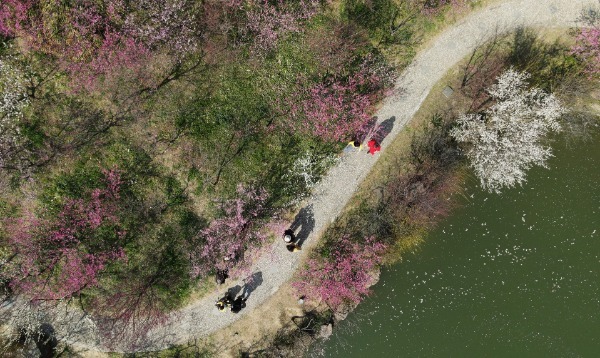Digital technologies make travel safer, convenient amid epidemic


The use of digital technologies in famed tourist attractions of China during this year's Spring Festival holiday has brought convenience to visitors amid stringent anti-epidemic measures.
During the holiday period that lasted from Feb 11 to 17, the West Lake, a popular scenic spot in the city of Hangzhou, capital of East China's Zhejiang province, saw more than 1.66 million visitors.
Shedding light on the precautionary measures against COVID-19, Su Yuanyuan, a staffer with the scenic area, said infrared cameras were installed to control tourist flow in Broken Bridge, an important scenic spot of the West Lake, during the peak holiday period.
"We installed four infrared cameras at each end of the bridge to enable real-time update of visitor numbers," said Su, adding that once the flow of visitors exceeded 900, they are led to other scenic spots around to avoid mass gatherings.
Thanks to the effective measure, the scenic spot was able to keep track of the precise number of tourists, bringing convenience to the management of the tourist attraction.
During last year's National Day holiday, the West Lake had installed an LED screen displaying various service-related information, including the route map of bus travel and the real-time flow of visitors on Broken Bridge.
Qiandao Lake, another popular tourist destination in Zhejiang, received 78,500 tourists during the Spring Festival holiday this year, according to the local culture and tourism authority.
Starting April 2020, online booking has been rolled out for visitors. Tourists can make advance bookings through the Alipay platform and choose a proper time and route. They can enter the scenic spot directly after scanning a QR code, making traveling more convenient, said Fang Huilian, a local tourism official.
In addition, visitors can also enjoy many smart services like digital tour guides and VR panoramic previews through Alipay and WeChat platforms, Fang added.
The tourism industry continues to face epidemic-induced challenges, but thanks to digital technologies that have made travel safer and more convenient during these tough times, said Zhang Yi, a professor at the Tourism College of Zhejiang.

































